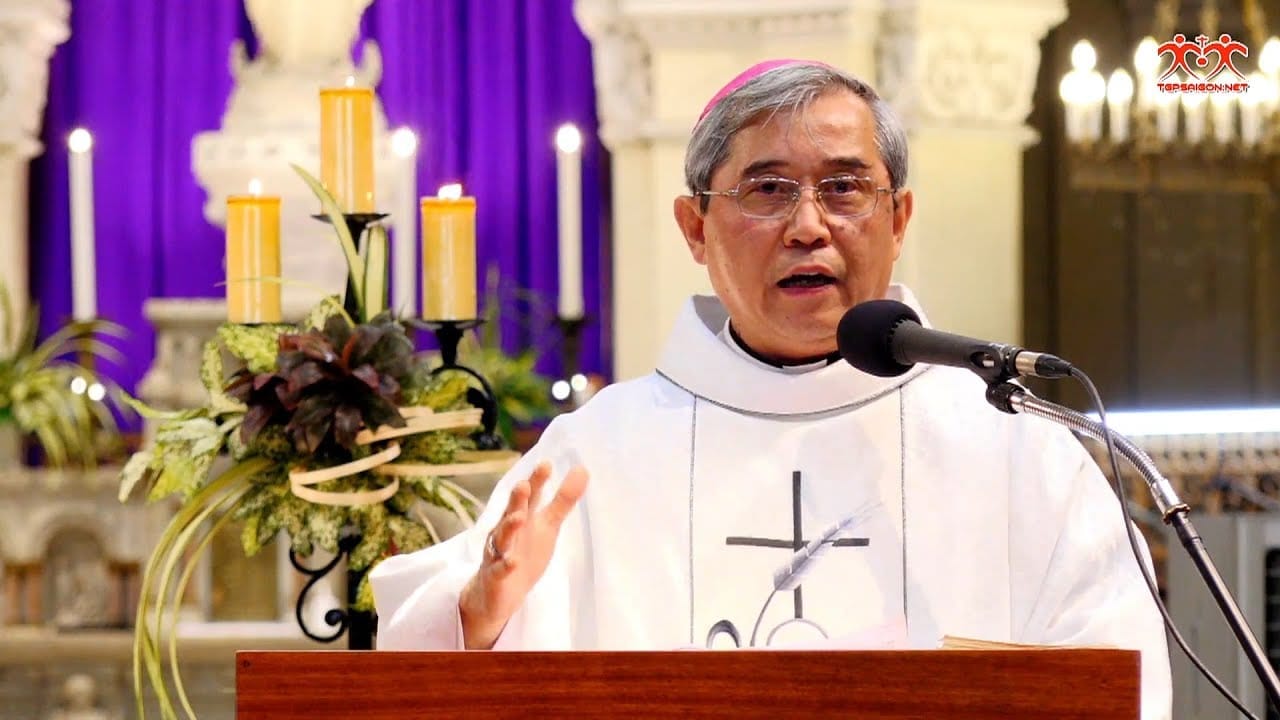Bishop Anh Tuan: Vietnamese, Catholic and non-Catholic, await Pope Francis
AsiaNews met the bishop of Ha Tinh, in the north of the country, among the participants at the Synod that concludes this weekend. Waiting for the signing of full relations between Hanoi and the Holy See. Faith and spirituality are ‘very important’ elements, as is the ‘evangelisation’ of migrants and the diaspora. Concern over tensions in the seas and wars in the Middle East.
Rome (AsiaNews) - The faithful around the world ‘are waiting for Pope Francis, but for the Vietnamese who have never seen him, and he has never visited our country’ the expectations are ‘far greater’ even if the question of signing full diplomatic relations remains open. This is what Msgr. Louis Nguyen Anh Tuan, bishop of Ha Tinh, in the north of the country, told AsiaNews, after having been auxiliary bishop of Ho Chi Minh City, in these weeks of October in Rome to participate in the work of the Synod.
‘The expectation for the pontiff's arrival in the country is strong,’ the prelate confirms, ‘and the government has hypothesised the signing on the occasion of a possible visit. The authorities in Hanoi believe in it a lot and already a couple of times the former president - whose office was renewed in recent days with the parliamentary vote that ended with the election of Luong Cuong - has gone to the pope and renewed the formal invitation'.
Faith and spirituality ‘are still very important elements’ for the population, which has the cult of the ancestors imprinted in its history and tradition, while ‘secularisation is a phenomenon more linked to the West that has not yet taken hold’. In the perspective of the growth of the Christian community, Msgr. Anh Tuan adds, the pope would be a source of further inspiration. ‘I am confident,’ he says, ‘that next year there will be an official signing and the pontiff will be able to come on an official visit,’ thanks to the work promoted in recent years by the Holy See and its envoys. Starting, he adds, with Card. Roger Echegaray in 1989 until today, with the visit of the ‘Vatican Foreign Minister’ Msgr. Paul Richard Gallagher to Hanoi.
On the subject of diplomatic relations, Vietnam has been cited several times as a model for launching a new phase in relations between the Holy See and China, even though there are profound differences, as the Bishop of Ha Tinh himself recalls. ‘China is Vietnam's big brother,’ he emphasised, “and one cannot think that Beijing will start imitating Hanoi”. There are ‘big differences’ starting with the fact that Vietnam is ‘smaller and much weaker’ in relations with other countries. ‘China is a strong nation politically and diplomatically,’ he adds, ‘and that is why it is not credible for them to imitate us’. On the other hand, for Vietnam these steps ‘are positive’ because they bring the nation ‘closer to the United States, to the West, which will look at Vietnam with greater sympathy and affection’.
One of the concerns of the bishop, who previously served as auxiliary of Ho Chi Minh City, remains that of migration because ‘coming from a rural, agricultural reality, in the last five years we have seen many young people move abroad’. Hence the ‘concern’ at the level of the Bishops' Conference to “enhance formation, starting with catechism, so that they may have a stronger spiritual background and be true witnesses of faith” even in diaspora communities and lead “a stable life, without external influences”. For them, he says, ‘we have set up a ministry for migrants’ entrusted with the task of following them ‘on the path of evangelisation’ and in their search ‘for a better life’.
There is also the hope that the Synod, which concludes this week, can also make a further contribution to the Church in Vietnam, as the prelate also confirms that the month of meetings in the Vatican represents a ‘great opportunity’. ‘The hope,’ he warns, ‘is that it can bear fruit: an important path to strengthen the feeling of solidarity, as well as the government of the Church, the communion, so that all the people of the world, even if on the margins, feel part of it, are integrated and provide support. This is also an opportunity to ‘promote programmes aimed at evangelisation,’ he says, ‘through migration, a phenomenon that everyone must accept through the diaspora like the first Christians. We must go out and be vibrant witnesses of the faith'.
Finally, the bishop turns his thoughts to the many areas of tension and hotbeds of war, starting in the Middle East as well as the skirmishes in the seas of the Asia-Pacific region, which also worry the Asian nation. ‘We are all concerned about the conflicts in the Middle East,’ he emphasised, “and also in the seas around Vietnam there is a situation of tension” that cyclically tends to ease off and then pick up again. ‘We [Vietnamese] are victims of these tensions and we depend on other states such as China, India, the United States, Japan or Australia. These are waters that we call the Eastern Ocean,' he concludes, ’and they are rich in natural resources, minerals, oil and fish, they are the object of interest from an economic and energy point of view.







.png)










